It’s always a terrible sight to see a dead animal on the highway, whether it’s a deer, coyote, dog, cat, armadillo, or whatever. Unfortunately, we’ve built endless ribbons of roads through wilderness (aka, the homes of animals) and that is just part of everyday life. It’s estimated that roads affect one-fifth of the ecology of the entire United States and that vehicle collisions with animals cost $8 BILLION per year.
Of course, you’ve seen the “Deer Xing” signs and other notices for animals that might be in a particular area, but those warnings can only do so much. That is why animal overpasses and underpasses are so important to maintaining animal habitats and saving the lives of all kinds of creatures – not to mention the hoods of our cars.
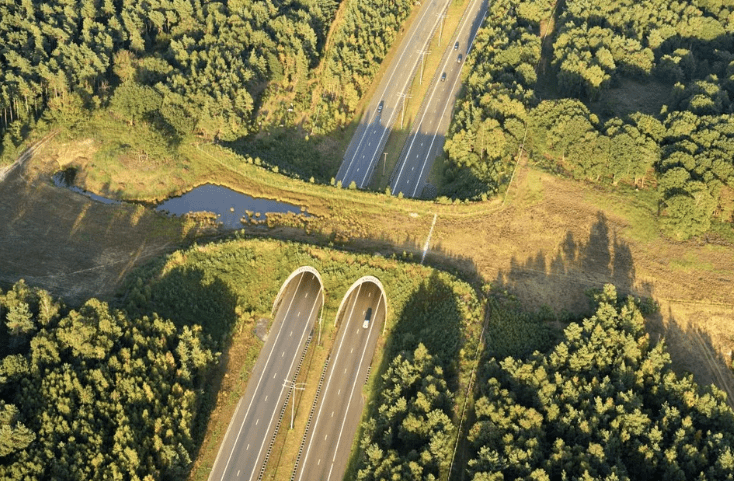
Photo Credit: Reddit
The trend started in France in the 1950s, and Europe remains a trendsetter for animal bridges. The Netherlands alone has 66 bridges scattered throughout the country to protect their wildlife, like the one you can see above. Below is an example of an animal bridge in Belgium:
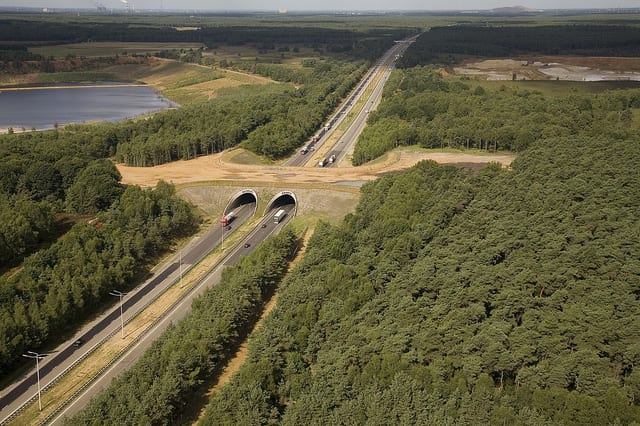
Photo Credit: Reddit
The trend has taken hold in the United States and Canada over the past 30 years. The bridges and underpasses come in all shapes and sizes and are specifically designed for each ecosystem. Here is an example from New Jersey.
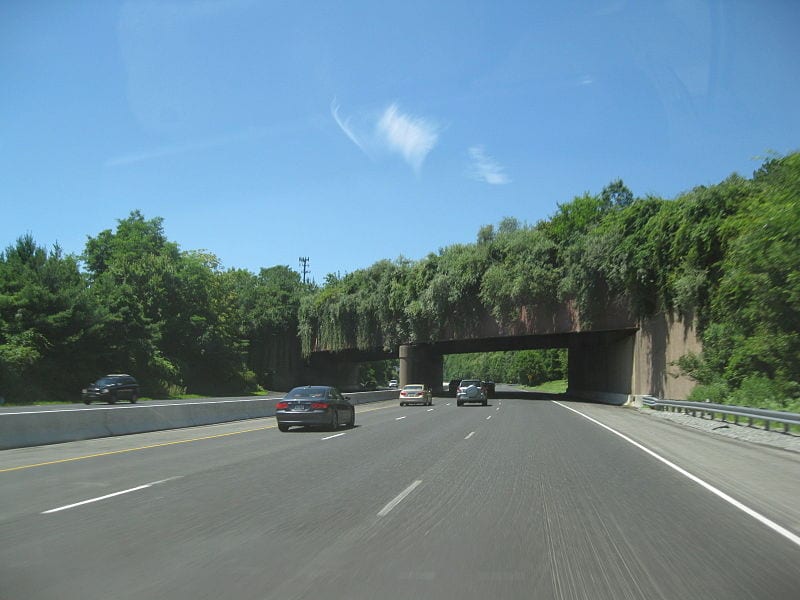
Photo Credit: Wikipedia
Here are some other great examples from across the globe. One from Germany.
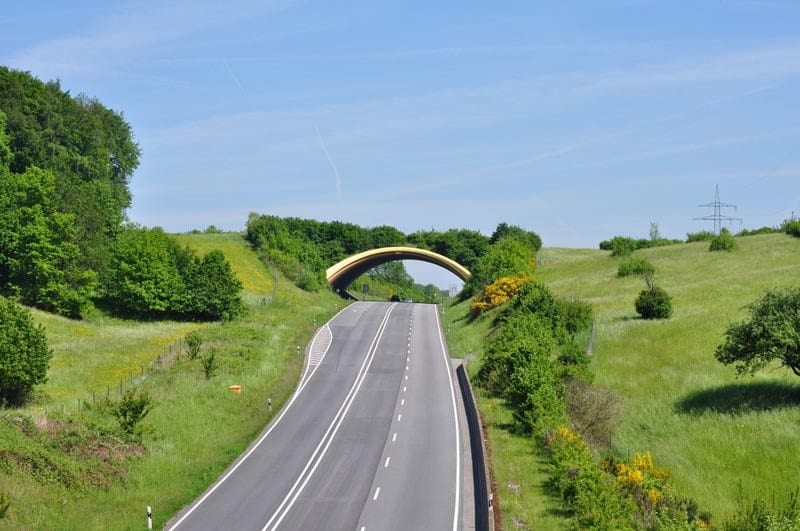
Photo Credit: Reddit
One from Montana.
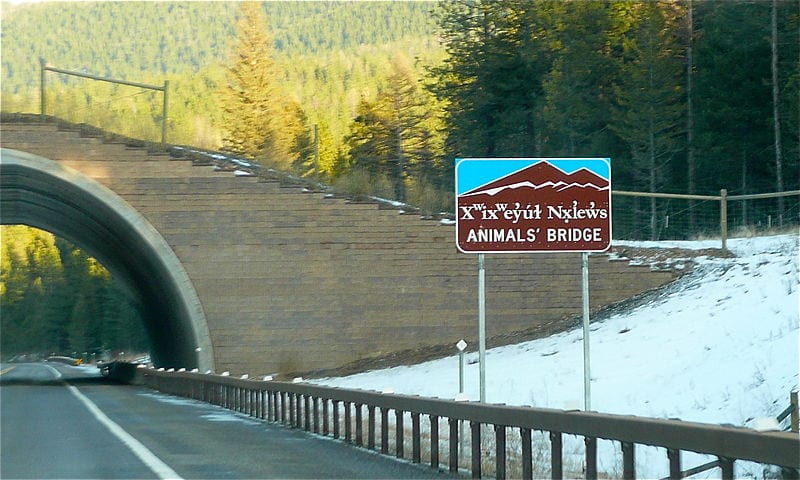
Photo Credit: Wikimedia Commons
Alberta, Canada.
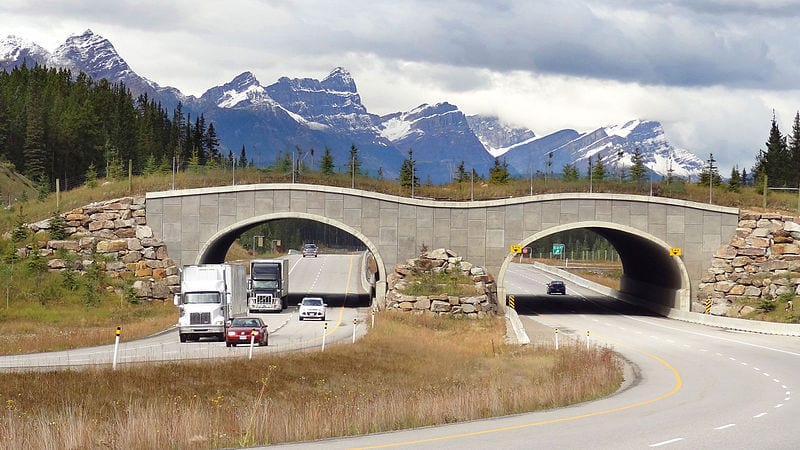
Photo Credit: Wikimedia Commons
Here’s a video about the animal crossings in Banff National Park in Canada that will give you some more insight into how important this trend really is.
Now this is a trend we can all get behind in a big way.
The post People are Building Bridges for Animals to Safely Cross Freeways appeared first on UberFacts.